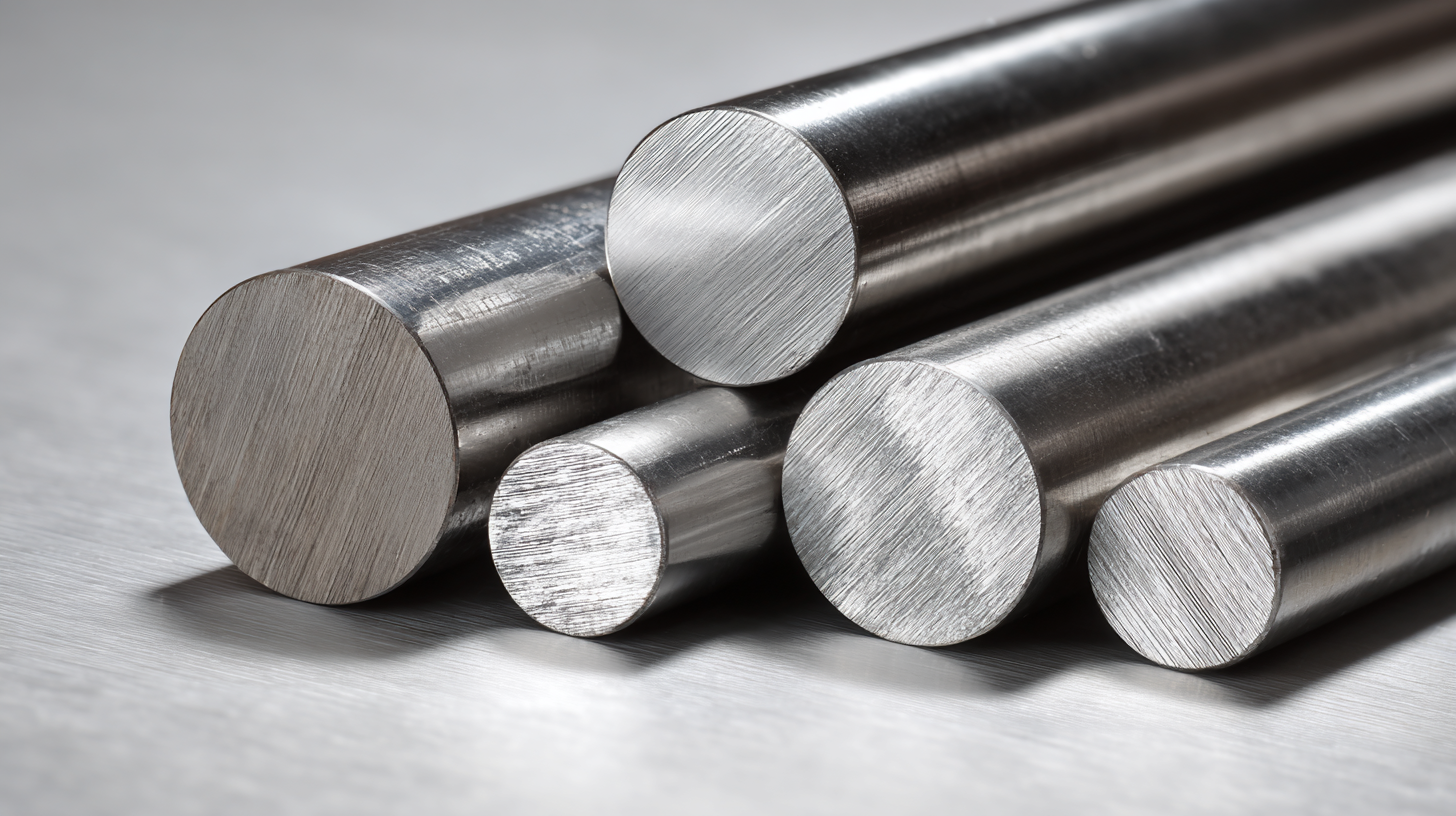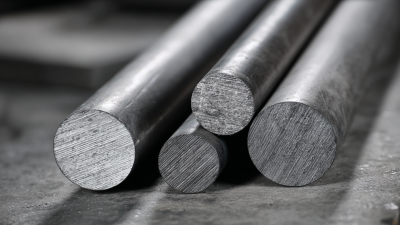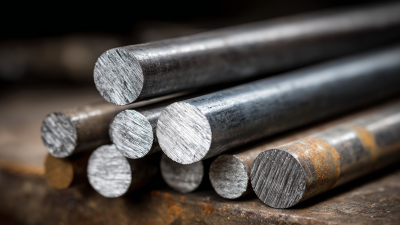How to Select the Right Cemented Carbide Round Bars for Your Industrial Needs
The selection of the right Cemented Carbide Round Bars is crucial for various industrial applications, particularly in machining and tooling processes. According to a report by MarketsandMarkets, the global cemented carbide market is projected to reach USD 40.59 billion by 2025, driven by the growing demand for high-performance materials in industries such as aerospace, automotive, and manufacturing.
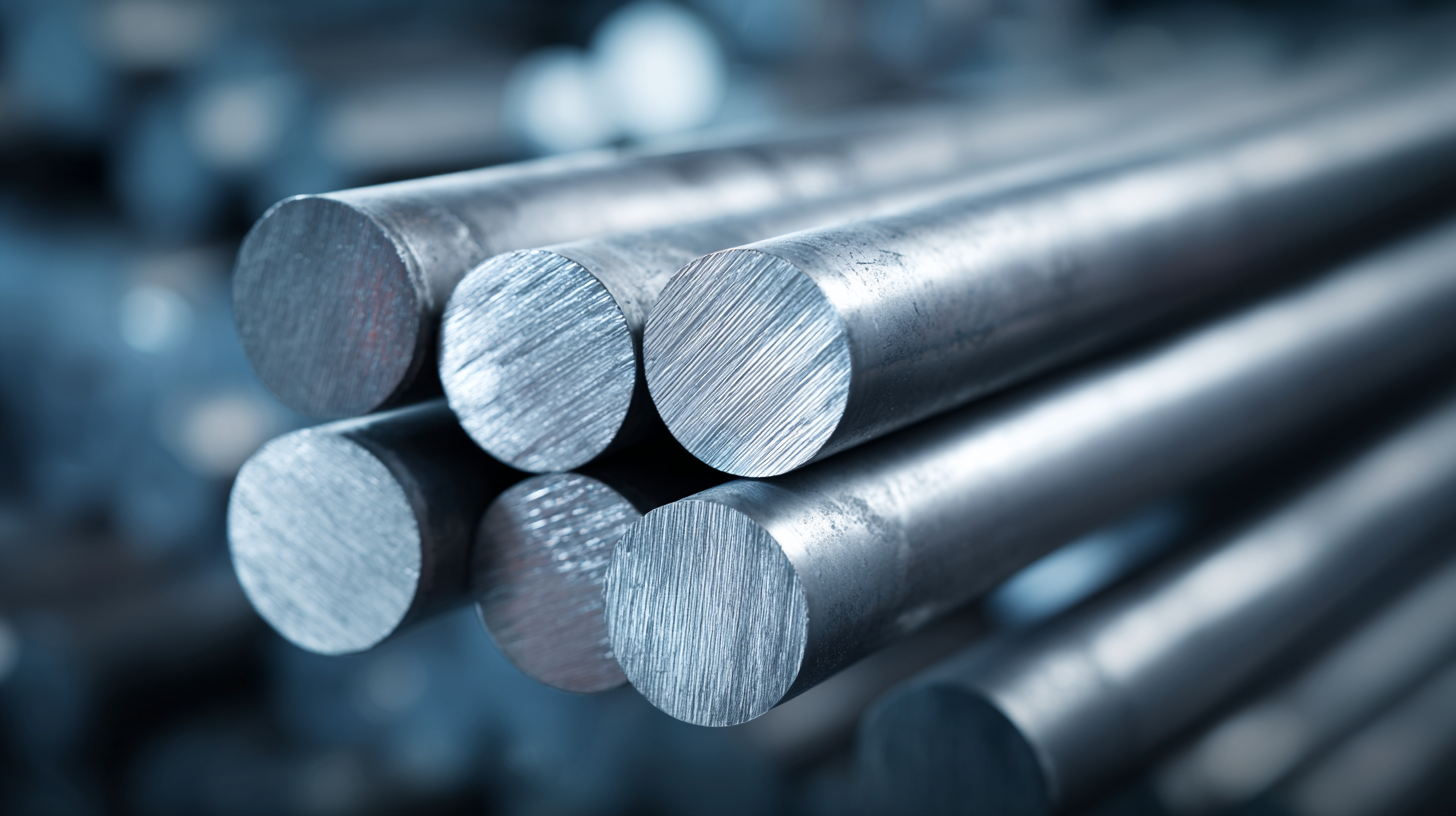
Cemented carbide, known for its exceptional hardness and wear resistance, significantly enhances the life cycle of tools and components. Selecting the appropriate round bars not only impacts operational efficiency but also influences production costs and overall product quality. As industries strive for precision and durability, understanding the specifications and applications of Cemented Carbide Round Bars becomes imperative for engineers and procurement professionals aiming to optimize their manufacturing processes.
Understanding the Basic Properties of Cemented Carbide Round Bars
Cemented carbide round bars are integral components in various industrial applications, primarily due to their exceptional hardness and wear resistance. These bars are made by combining tungsten carbide particles with a metal binder, typically cobalt or nickel, which enhances their toughness.
According to a report by MarketsandMarkets, the global market for cemented carbide is projected to reach $16.5 billion by 2025, indicating a growing demand for these materials in industries such as manufacturing, construction, and mining.
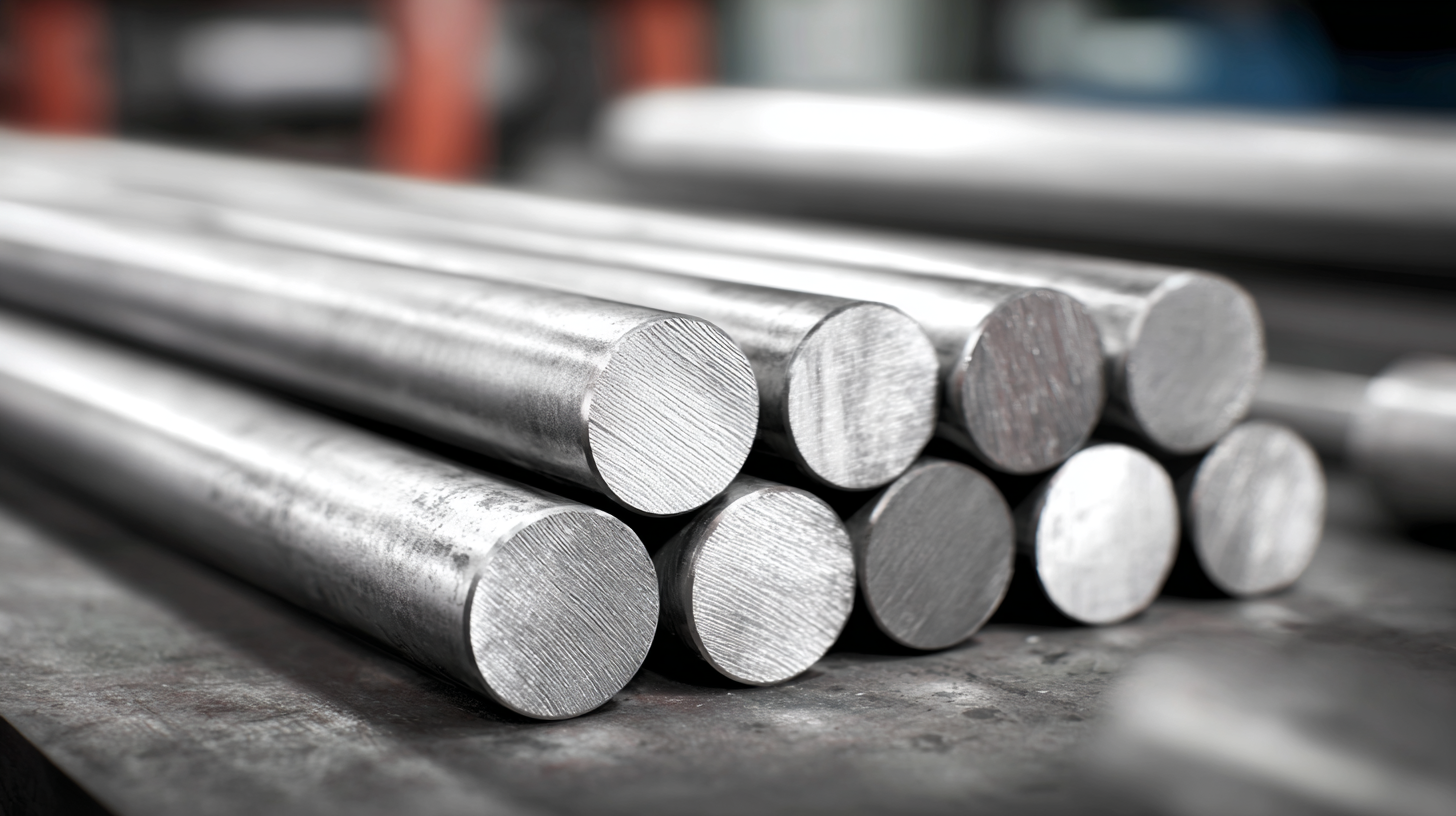
The basic properties of cemented carbide round bars, including their high compressive strength and temperature stability, make them suitable for machining hard materials. For instance, the hardness of cemented carbide typically ranges between 1500 to 2200 HV (Vickers hardness), which allows for superior performance in high-speed cutting applications. Additionally, their thermal conductivity and resistance to deformation at elevated temperatures further highlight their reliability in demanding environments, ensuring prolonged tool life and reduced downtime. Understanding these properties is essential for selecting the right bar for specific industrial needs, as performance directly correlates with the type of tasks being undertaken.
Identifying the Specific Industrial Applications for Round Bars
When selecting cemented carbide round bars for industrial applications, it is crucial to first identify the specific needs of the industry. Round bars are commonly utilized in manufacturing tools, machining parts, and wear-resistant components due to their exceptional hardness and durability. Understanding the environmental conditions in which these materials will operate—such as temperature extremes, exposure to corrosive substances, and mechanical stress—can help in determining the most suitable grade and size of carbide round bars.
Different industries have varying requirements for their applications. For instance, the aerospace sector demands materials that can withstand high stress and offer lightweight solutions, whereas the mining industry requires tough materials capable of enduring harsh operational environments. Additionally, the automotive industry often requires precision-engineered components that offer both strength and resistance to wear. By thoroughly assessing the application context, including load conditions and surface finishes, industries can make informed decisions on the right cemented carbide round bars that enhance performance and longevity in their operations.
Evaluating the Performance Characteristics and Grades of Cemented Carbide
When selecting cemented carbide round bars for industrial applications, it's crucial to evaluate their performance characteristics to ensure optimal functionality. Cemented carbide, composed of tungsten carbide and cobalt, offers exceptional hardness and wear resistance, making it ideal for machining tools and cutting applications. According to a report by Research and Markets, the global cemented carbide market is projected to grow at a CAGR of 6.7% from 2021 to 2026, driven by increasing demand from the automotive and aerospace sectors. This growth underscores the significance of understanding the specific grades of cemented carbide available.
Different grades of cemented carbide exhibit varying properties suited to diverse applications. For instance, grade WC-Co 6% is known for its excellent toughness and is widely used in heavy-duty tooling, while WC-Co 12% displays superior wear resistance, ideal for high-speed machining. A comprehensive analysis, such as that from the American Society for Testing and Materials (ASTM), indicates that the binder percentage and particle size distribution significantly affect the mechanical properties of the final product. Therefore, selecting the right grade based on the intended use is essential for maximizing tool life and performance in demanding industrial environments.
Assessing Supplier Quality and Reliability for Industrial Procurement
When selecting cemented carbide round bars for industrial applications, evaluating supplier quality and reliability is crucial to ensuring optimal performance and longevity. According to a recent report by Grand View Research, the global cemented carbide market is expected to reach $20.3 billion by 2027, driven primarily by increasing demand in aerospace and automotive industries. This rapid growth underscores the importance of sourcing materials from reputable suppliers who adhere to strict quality control measures.
To assess supplier quality, consider their manufacturing processes and certifications. ISO 9001 certification signifies that a supplier maintains effective quality management systems, crucial for ensuring product consistency. Additionally, evaluating the supplier's track record through customer reviews and industry accolades can provide insight into their reliability.
A survey conducted by the Manufacturing Leadership Council in 2022 indicated that 63% of manufacturers emphasize supplier reliability as a key factor in their procurement decision-making process. By focusing on these criteria, businesses can mitigate risks and enhance operational efficiency with the right cemented carbide products.
Making Cost-Effective Choices: Balancing Quality and Budget Considerations
When selecting cemented carbide round bars for industrial applications, balancing quality and budget is crucial. According to a report by MarketsandMarkets, the global carbide tools market is expected to reach USD 2.34 billion by 2025, driven by increasing demand for durability and performance in industrial applications. This emphasizes the importance of investing in high-quality materials, as they tend to provide better wear resistance, extended tool life, and improved cutting efficiency, ultimately leading to lower overall costs in the long run.
However, budget considerations cannot be overlooked. The initial cost of cemented carbide can be significantly higher than other materials; thus, it's essential to conduct a thorough cost-benefit analysis. A study from Technavio suggests that while premium carbide grades offer superior performance, mid-range options can still meet specific industrial needs efficiently. By evaluating the required hardness, toughness, and abrasion resistance, industries can make informed decisions that align with their budget constraints without sacrificing performance. Prioritizing the right specifications tailored to application demands ensures that choices are both cost-effective and suitable for sustaining productivity in competitive markets.

Home
About Us
Products
Solid Carbide Rods
Carbide Rods with coolant holes
Carbide Rods with Two Helix Holes
Tungsten Carbide Flats
Solid Carbide Discs
Tungsten Carbide anti-vibration cylindrical shafts
Non-standard Customized Carbide Blanks
Solid Carbide Circular Saw Blade
Solid Carbide Woodworking Blade
Solide Carbide End Mills
Solid Carbide Drills
Carbide Rotary Burrs
Customized Carbide Tools
News
FAQS
Contact Us


